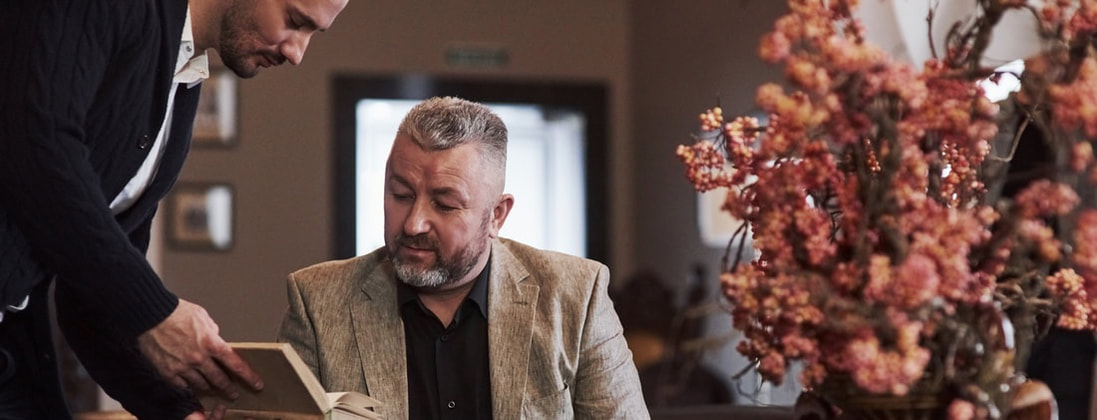Trusts : Protect and Manage Your Wealth
For Your Family, Now and For Future Generations
DISCLAIMER: Please note that this article is neither a comprehensive compilation of all relevant information on this topic nor a substitute for professional legal advice.
|
Our Corporate Law Team is ready to serve you. Please contact us for more information.
[email protected] [email protected] [email protected] [email protected] [email protected] |
This article is also available in PDF.
| ||
Singapore is swiftly rising to prominence as a leading international trust jurisdiction. In tandem with Asia’s growing stake in the global economy, Singapore's wealth management sector is seeing a remarkable expansion. Due to Singapore's unique and compelling advantages as a trust jurisdiction, both local millionaires and foreign High-Net-Worth Individuals (HNWI) are choosing to set up trusts in Singapore as preferred vehicles for managing their wealth.
Singapore is one of the best places for setting up and managing trust due to its open economy, stable economic policies, extensive legislation, and growth as financial security hub in, and for the region.
We have provided herein a broad overview of trusts in Singapore with our primary focus on information related to setting a private family trust.
Singapore is one of the best places for setting up and managing trust due to its open economy, stable economic policies, extensive legislation, and growth as financial security hub in, and for the region.
We have provided herein a broad overview of trusts in Singapore with our primary focus on information related to setting a private family trust.
WHAT IS A TRUST
A trust is a legal arrangement and/or entity (governed by the Trustees Act 1967, Singapore) in which assets are placed by a person (“settlor”) for the benefit of another person (“beneficiary” or “beneficiaries”). The settlor appoints another person (“trustee”) to administer and manage the trust and hold the assets (within the trust) for the benefit of the beneficiaries.
A trust assures that the economic benefits from the assets placed in the trust accrue to the beneficiary whilst the trustee manages and administers the assets placed in the trust. The trustee has a fiduciary and statutory obligation to act and perform in the best interests of the beneficiaries.
The settlor can determine which assets are included in the trust and how they should be distributed to the beneficiaries. Assets such as real estate, cash, investment portfolios, business, equities, jewellery, art collections or other items of value such as patents, copyrights, trademarks, etc. can be placed in a trust. Essentially, anything and everything that is owned by the settlor (with a few exceptions such as CPF monies or jointly owned properties) can be placed within the trust.
It is pertinent to note that the settlor, trustee and beneficiary can be any individual or a legal entity. Subsequently, settlor can appoint more than one trustee within the trust and make provisions for as many beneficiaries as the settlor desires.
Additionally, to provide a further layer of protection on the assets and monitor the actions of the trustee, a settlor can also appoint a “protector” for the trust to ensure the trustee does not abuse his/her power.
A trust is a legal arrangement and/or entity (governed by the Trustees Act 1967, Singapore) in which assets are placed by a person (“settlor”) for the benefit of another person (“beneficiary” or “beneficiaries”). The settlor appoints another person (“trustee”) to administer and manage the trust and hold the assets (within the trust) for the benefit of the beneficiaries.
A trust assures that the economic benefits from the assets placed in the trust accrue to the beneficiary whilst the trustee manages and administers the assets placed in the trust. The trustee has a fiduciary and statutory obligation to act and perform in the best interests of the beneficiaries.
The settlor can determine which assets are included in the trust and how they should be distributed to the beneficiaries. Assets such as real estate, cash, investment portfolios, business, equities, jewellery, art collections or other items of value such as patents, copyrights, trademarks, etc. can be placed in a trust. Essentially, anything and everything that is owned by the settlor (with a few exceptions such as CPF monies or jointly owned properties) can be placed within the trust.
It is pertinent to note that the settlor, trustee and beneficiary can be any individual or a legal entity. Subsequently, settlor can appoint more than one trustee within the trust and make provisions for as many beneficiaries as the settlor desires.
Additionally, to provide a further layer of protection on the assets and monitor the actions of the trustee, a settlor can also appoint a “protector” for the trust to ensure the trustee does not abuse his/her power.
HOW TO CREATE A TRUST
Trusts are created through trust instruments such as contract, a will, and a trust deed. Setting up a trust can have significant impacts on the settlor and on the beneficiaries. Thus, anyone looking to set up a trust will benefit from expert legal advice.
A trust is established when the assets are transferred to the trust and when the settlor appoints a trustee (or declares himself a trustee) via a declaration of trust to hold the assets for the beneficiaries.
Some of the basic requirements for creating a trust include the following:
The major steps of creating a trust are:
The other crucial facts that decide whether one should create a trust depends on the individual’s financial, family, and business circumstances although trusts undeniably have an abundance of benefits in terms of wealth management and asset protection.
In Singapore, trusts are well regulated. Trusts provides an assurance to the individuals that their assets are secured and protected by a well-established common law and statutory framework. Singapore not only permits the settlor to maintain some control over the assets but also allow the settlor to engage in managing the investments made in the trusts.
Trusts are created through trust instruments such as contract, a will, and a trust deed. Setting up a trust can have significant impacts on the settlor and on the beneficiaries. Thus, anyone looking to set up a trust will benefit from expert legal advice.
A trust is established when the assets are transferred to the trust and when the settlor appoints a trustee (or declares himself a trustee) via a declaration of trust to hold the assets for the beneficiaries.
Some of the basic requirements for creating a trust include the following:
- the settlor must have the legal and mental capacity to create a trust;
- the settlor must have clear purpose and intention to create a trust;
- the settlor must identify the assets that he/she desires to be part of the trust; and
- the settlor must be well aware of the compliance with all laws and legislation governing the trusts.
The major steps of creating a trust are:
- identify the beneficiaries;
- decide on the terms of the trust;
- choose a trustee;
- prepare the trust deed;
- transfer the assets to the trust;
- registration of the trust (although this is not mandatory but is advised as it may be beneficial from a tax and regulatory point of view); and
- comply with the ongoing obligations.
The other crucial facts that decide whether one should create a trust depends on the individual’s financial, family, and business circumstances although trusts undeniably have an abundance of benefits in terms of wealth management and asset protection.
In Singapore, trusts are well regulated. Trusts provides an assurance to the individuals that their assets are secured and protected by a well-established common law and statutory framework. Singapore not only permits the settlor to maintain some control over the assets but also allow the settlor to engage in managing the investments made in the trusts.
KEY BENEFITS OF CREATING A TRUST (IN SINGAPORE)
There are numerous benefits of creating a trust in Singapore, some of the crucial benefits are:
Protection of Assets
The most important benefit from creating a trust is the ability to protect assets. When the settlor transfers the assets to the trust, the legal ownership of such assets is transferred from the settlor to the trust, resulting in the protection of these assets from claims by creditors or from potential lawsuits against the settlor.
This form of asset preservation is one of the primary benefits of trusts for high-risk individuals or business owners. Personal assets are shielded against business risks. If the settlor becomes bankrupt, the trust assets are protected against creditors as trust assets cannot be used to settle the creditor’s debts nor serve as compensation for claims against the settlor.
Additionally, a settlor can direct the trustee to hold the assets for the beneficiary, who at the time of formation of the trust is a minor, up until the time the beneficiary attains the age of 21 years of age, or for the family members who are not fiscally fit to manage their assets. With this, the settlor can ensure that the beneficiary enjoys the economic benefits without having to manage the assets himself of herself.
Trust assets will also be protected in matrimonial property disputes. However, it is crucial to note that assets must be in trust for a minimum period of five years before it can be protected from any claims.
Care arrangements
A settlor can make care arrangements for any person, generally a family member, who would require special care during or after the demise of the settlor. For example, if the settlor thinks that any of the beneficiaries has special needs or is incapacitated and would not be able to manage the assets, a settlor can make care arrangements for such beneficiaries through the trust.
Wealth management
Trusts can be used to manage the wealth especially when the beneficiary is a minor or does not have capacity to hold and/or manage the wealth. In such cases, the settlor can specify how the assets should be invested. The trustee will then manage the assets as directed and distribute them to the beneficiaries according to the terms and conditions of the trust.
Tax benefit
Another prime advantage of creating a trust in Singapore is the tax benefit as there is no estate duty tax, withholding tax or capital gains tax.
The territoriality principle of tax applies to the income of a trust. Accordingly, tax will be charged on income that is earned or received in Singapore. Such income is the statutory income of the trustee and is subject to tax at the trustee level. Therefore, income derived from the distribution of assets to the trustees are not taxable. That being said, tax transparency treatment is accorded to beneficiaries who are residents in Singapore and are entitled to the income under the trust. In this case, tax will not be applied at trustee level. Instead, the beneficiaries are subject to tax on the distributions received and will enjoy the concessions, exemptions and foreign credits that may be available to them. This treatment does not apply to resident beneficiaries who are not entitled to the trust income.
Thus, for the assets or the income generated under the trust that fall within the high tax bracket (for the settlor), it would be more sensible to transfer such assets to trust as earnings from those assets will then fall in the trust and the tax liability will be reduced.
Estate and succession planning
The trust assets will not be subject to lengthy probate proceedings when the settlor passes away. Singapore trust laws also protect against forced inheritance regimes under certain circumstances.
The settlor can specify when and to whom the assets must be distributed after the settlor’s death. If the settlor’s descendants are minors, the assets can remain in the trust and be distributed later as specified by the settlor. In this way, the interests of minor children or children who are not capable of managing their own affairs can be protected.
In some circumstances, it could be beneficial for the descendent to keep the assets in the trust for the benefit of the grandchildren of the settlor. For example, if receiving the benefit would place the beneficiary in a higher tax bracket, or if they live in a country with high estate duties, leaving the asset in the trust for the next generation might be a more prudent approach.
Additionally, there are anti-forced heirship provisions laid down under the laws of Singapore. Thus, in the event of forced heirship (where a person of Muslim faith is governed under Syariah law and not allowed to distribute assets to the beneficiaries of his/her choice) that person can create a trust and transfer all his/her assets in the trust. The assets of the trust will then be protected from the forced heirship and can be distributed in any proportion to any beneficiary as the person may desire.
Charities
A charitable trust can be formed to ensure that assets are properly used for the benefit of a charitable organisation in the event that a person is desirous to give his assets for charity during or after his lifetime.
Confidentiality
No registration is required for any trust in Singapore and therefore it provides complete privacy as the ultimate beneficial owner of the assets is not disclosed.
Singapore is party to more than 90 comprehensive Double Taxation Agreements (DTAs) that have incorporated internationally-approved standards on the Exchange of Information of Organisation for Economic Co-operation and Development (OECD).
Having said that, Singapore does not compromise on the confidentiality laws under the Banking Act 1970 and the Trust Companies Act 2005. Singapore trusts offer a high degree of confidentiality as the trust deed and beneficiaries’ identities are not publicly disclosed. Trustees are bound by a legal duty of confidentiality and a breach of this duty can result in legal action against the trustee. As a result, trusts effectively protect the information of both settlor and beneficiaries. Only bona fide requests satisfying all the requisite conditions of legitimacy and relevance are entertained, and only the Singapore Courts have the power to lift the veil of banking and trust confidentiality conferred by the legislation.
Perpetuity
Ideally, in Singapore, trusts are generally valid for a maximum period of 100 years unless a shorter period is specified in the trust deed or when all the trust assets have been distributed to the beneficiaries and/or when all the beneficiaries unanimously consent to the termination.
There are numerous benefits of creating a trust in Singapore, some of the crucial benefits are:
Protection of Assets
The most important benefit from creating a trust is the ability to protect assets. When the settlor transfers the assets to the trust, the legal ownership of such assets is transferred from the settlor to the trust, resulting in the protection of these assets from claims by creditors or from potential lawsuits against the settlor.
This form of asset preservation is one of the primary benefits of trusts for high-risk individuals or business owners. Personal assets are shielded against business risks. If the settlor becomes bankrupt, the trust assets are protected against creditors as trust assets cannot be used to settle the creditor’s debts nor serve as compensation for claims against the settlor.
Additionally, a settlor can direct the trustee to hold the assets for the beneficiary, who at the time of formation of the trust is a minor, up until the time the beneficiary attains the age of 21 years of age, or for the family members who are not fiscally fit to manage their assets. With this, the settlor can ensure that the beneficiary enjoys the economic benefits without having to manage the assets himself of herself.
Trust assets will also be protected in matrimonial property disputes. However, it is crucial to note that assets must be in trust for a minimum period of five years before it can be protected from any claims.
Care arrangements
A settlor can make care arrangements for any person, generally a family member, who would require special care during or after the demise of the settlor. For example, if the settlor thinks that any of the beneficiaries has special needs or is incapacitated and would not be able to manage the assets, a settlor can make care arrangements for such beneficiaries through the trust.
Wealth management
Trusts can be used to manage the wealth especially when the beneficiary is a minor or does not have capacity to hold and/or manage the wealth. In such cases, the settlor can specify how the assets should be invested. The trustee will then manage the assets as directed and distribute them to the beneficiaries according to the terms and conditions of the trust.
Tax benefit
Another prime advantage of creating a trust in Singapore is the tax benefit as there is no estate duty tax, withholding tax or capital gains tax.
The territoriality principle of tax applies to the income of a trust. Accordingly, tax will be charged on income that is earned or received in Singapore. Such income is the statutory income of the trustee and is subject to tax at the trustee level. Therefore, income derived from the distribution of assets to the trustees are not taxable. That being said, tax transparency treatment is accorded to beneficiaries who are residents in Singapore and are entitled to the income under the trust. In this case, tax will not be applied at trustee level. Instead, the beneficiaries are subject to tax on the distributions received and will enjoy the concessions, exemptions and foreign credits that may be available to them. This treatment does not apply to resident beneficiaries who are not entitled to the trust income.
Thus, for the assets or the income generated under the trust that fall within the high tax bracket (for the settlor), it would be more sensible to transfer such assets to trust as earnings from those assets will then fall in the trust and the tax liability will be reduced.
Estate and succession planning
The trust assets will not be subject to lengthy probate proceedings when the settlor passes away. Singapore trust laws also protect against forced inheritance regimes under certain circumstances.
The settlor can specify when and to whom the assets must be distributed after the settlor’s death. If the settlor’s descendants are minors, the assets can remain in the trust and be distributed later as specified by the settlor. In this way, the interests of minor children or children who are not capable of managing their own affairs can be protected.
In some circumstances, it could be beneficial for the descendent to keep the assets in the trust for the benefit of the grandchildren of the settlor. For example, if receiving the benefit would place the beneficiary in a higher tax bracket, or if they live in a country with high estate duties, leaving the asset in the trust for the next generation might be a more prudent approach.
Additionally, there are anti-forced heirship provisions laid down under the laws of Singapore. Thus, in the event of forced heirship (where a person of Muslim faith is governed under Syariah law and not allowed to distribute assets to the beneficiaries of his/her choice) that person can create a trust and transfer all his/her assets in the trust. The assets of the trust will then be protected from the forced heirship and can be distributed in any proportion to any beneficiary as the person may desire.
Charities
A charitable trust can be formed to ensure that assets are properly used for the benefit of a charitable organisation in the event that a person is desirous to give his assets for charity during or after his lifetime.
Confidentiality
No registration is required for any trust in Singapore and therefore it provides complete privacy as the ultimate beneficial owner of the assets is not disclosed.
Singapore is party to more than 90 comprehensive Double Taxation Agreements (DTAs) that have incorporated internationally-approved standards on the Exchange of Information of Organisation for Economic Co-operation and Development (OECD).
Having said that, Singapore does not compromise on the confidentiality laws under the Banking Act 1970 and the Trust Companies Act 2005. Singapore trusts offer a high degree of confidentiality as the trust deed and beneficiaries’ identities are not publicly disclosed. Trustees are bound by a legal duty of confidentiality and a breach of this duty can result in legal action against the trustee. As a result, trusts effectively protect the information of both settlor and beneficiaries. Only bona fide requests satisfying all the requisite conditions of legitimacy and relevance are entertained, and only the Singapore Courts have the power to lift the veil of banking and trust confidentiality conferred by the legislation.
Perpetuity
Ideally, in Singapore, trusts are generally valid for a maximum period of 100 years unless a shorter period is specified in the trust deed or when all the trust assets have been distributed to the beneficiaries and/or when all the beneficiaries unanimously consent to the termination.
MAJOR CATEGORIES OF TRUST
Many different types of trust exist and include, but are not limited to, the following:
Charitable trust
A charitable trust is a form of organisation established through a trust deed. The settlor's trust property is administered by a trustee for a charitable intention set out in the trust deed. A charitable trust serves to promote a charitable purpose and does not benefit any specific persons.
A charitable trust is designed to make donations to a designated charity rather than a person or a group. In principle, a charitable trust can last indefinitely. The trust can still make donations even after death of settlor.
Private family trust
A private family trust is usually designed to help a person preserve assets and facilitate the transfer of assets to future generations. These trusts provide continuity in the administration of assets. However, unlike charitable trusts, the private family trust last for 100 years only.
A trust may be created by will, deed or declaration. Trusts created by will (testamentary trusts) must comply with the formalities of the Wills Act 1838 (Singapore) and would take effect after the settlor’s death, whereas trusts created by declaration (inter vivos trusts) must comply with the relevant Civil Law Act 1909 (Singapore) depending on the type of property placed in trust.
Many different types of trust exist and include, but are not limited to, the following:
Charitable trust
A charitable trust is a form of organisation established through a trust deed. The settlor's trust property is administered by a trustee for a charitable intention set out in the trust deed. A charitable trust serves to promote a charitable purpose and does not benefit any specific persons.
A charitable trust is designed to make donations to a designated charity rather than a person or a group. In principle, a charitable trust can last indefinitely. The trust can still make donations even after death of settlor.
Private family trust
A private family trust is usually designed to help a person preserve assets and facilitate the transfer of assets to future generations. These trusts provide continuity in the administration of assets. However, unlike charitable trusts, the private family trust last for 100 years only.
A trust may be created by will, deed or declaration. Trusts created by will (testamentary trusts) must comply with the formalities of the Wills Act 1838 (Singapore) and would take effect after the settlor’s death, whereas trusts created by declaration (inter vivos trusts) must comply with the relevant Civil Law Act 1909 (Singapore) depending on the type of property placed in trust.
TYPES OF TRUST
The most common types of trusts are:
Inter vivos trust (Living Trust)
This trust is created in the settlor’s lifetime. It is also called a living trust. The assets are placed in the trust during the settlor’s life. The settlor can state their wishes for managing and distributing benefits in a letter of wishes which can be revised by the settlor as and when he/she feels the need to.
Inter vivos trusts are used for tax savings and protecting assets and can be very useful if the settlor becomes incapacitated in future or during the settlor’s mental incapacity and upon death.
Inter vivos trusts also allows Central Provident Fund (CPF) nominations and assignment of insurance plans.
Such trusts are usually used for tax effectiveness and to protect assets from creditors.
Besides annual trust administration fees immediately payable after the trust is created, such trusts generally require higher set-up costs, stamp duties and charges.
Testamentary trust (created through will)
A testamentary trust is formed through the settlor’s will. Upon the settlor’s death, the assets will pass into the trust as specified in the will of the settlor.
There is no trust whilst the settlor is still alive. It only comes into effect when the settlor dies.
This type of trust is useful when the settlor has minor children, dependents with special needs, and/or beneficiaries who cannot manage their inheritance.
Compared to other types of trusts, the testamentary trust requires the lowest cost to set up. There is an annual fee only after the trust is activated pursuant to the probate process.
A standby trust (hybrid of inter vivos and testamentary)
A standby trust is a mix of a testamentary and an inter vivos trust with the benefits of both. The trust is formed, but none, or very few, assets are placed in the trust whilst the settlor is still alive. The trust is dormant until a specific event occurs. The trustee is on standby until the event occurs.
The settlor can assign insurance policies, include CPF nominations and include provisions in respect of mental incapacity. This is done without the fees associated with assets transfer and ongoing administration.
If the specified event occurs, the assets can be transferred to the trust via a power of attorney. Alternatively, assets will be transferred upon the death of the settlor.
The set-up fee is low, without the fees to transfer the assets. The annual costs are minimal, while the trust remains dormant.
The most common types of trusts are:
Inter vivos trust (Living Trust)
This trust is created in the settlor’s lifetime. It is also called a living trust. The assets are placed in the trust during the settlor’s life. The settlor can state their wishes for managing and distributing benefits in a letter of wishes which can be revised by the settlor as and when he/she feels the need to.
Inter vivos trusts are used for tax savings and protecting assets and can be very useful if the settlor becomes incapacitated in future or during the settlor’s mental incapacity and upon death.
Inter vivos trusts also allows Central Provident Fund (CPF) nominations and assignment of insurance plans.
Such trusts are usually used for tax effectiveness and to protect assets from creditors.
Besides annual trust administration fees immediately payable after the trust is created, such trusts generally require higher set-up costs, stamp duties and charges.
Testamentary trust (created through will)
A testamentary trust is formed through the settlor’s will. Upon the settlor’s death, the assets will pass into the trust as specified in the will of the settlor.
There is no trust whilst the settlor is still alive. It only comes into effect when the settlor dies.
This type of trust is useful when the settlor has minor children, dependents with special needs, and/or beneficiaries who cannot manage their inheritance.
Compared to other types of trusts, the testamentary trust requires the lowest cost to set up. There is an annual fee only after the trust is activated pursuant to the probate process.
A standby trust (hybrid of inter vivos and testamentary)
A standby trust is a mix of a testamentary and an inter vivos trust with the benefits of both. The trust is formed, but none, or very few, assets are placed in the trust whilst the settlor is still alive. The trust is dormant until a specific event occurs. The trustee is on standby until the event occurs.
The settlor can assign insurance policies, include CPF nominations and include provisions in respect of mental incapacity. This is done without the fees associated with assets transfer and ongoing administration.
If the specified event occurs, the assets can be transferred to the trust via a power of attorney. Alternatively, assets will be transferred upon the death of the settlor.
The set-up fee is low, without the fees to transfer the assets. The annual costs are minimal, while the trust remains dormant.
ESSENTIAL FEATURES OF TRUST
Discretionary trust
In a discretionary trust, the trustee has complete discretion. When and what percentage of the assets must be distributed to whom in the pool of beneficiaries is at the trustee’s sole discretion.
This type of trust can be handy to protect family assets from matrimonial property disputes in divorce. It can protect beneficiaries against creditors, and it provides the possibility to adapt to changes in beneficiaries’ circumstances.
Discretionary trusts can be valuable in managing family issues. Where a family member exhibits poor financial management skills, or is at high risk of legal claims, or there are constant disputes amongst family members, the trustee can use their discretion to manage the issues.
Fixed trust
Contrary to discretionary trusts, the settlor determines who gets how much and when under a fixed trust. The trustee has no discretion. Trustees merely administer the assets according to the terms of the trust and wishes of the settlor.
Revocable trust
The settlor can terminate a revocable trust. The settlor can also change the terms of the trust. This makes it possible for the settlor to retain some control over the assets.
However, revocable trusts may open the door for creditors or spouses to claim against trust assets in the event of a bankruptcy or divorce. Given the fact that the trust arrangement can be unwound by the settlor, a Court might rule that the settlor still has control over the assets and may demand that the settlor terminates the trust to repay creditors.
Irrevocable trust
Under an irrevocable trust, the settlor retains no legal rights or control over the assets placed in the trust. He cannot revoke or change the terms of the trust and since the settlor has no legal rights over the assets, creditors cannot take the assets in settlement of claims against the settlor. Simply put, the assets do not belong to the settlor anymore.
In Singapore, to protect the assets from creditors, an irrevocable trust must have been set up for more than five years before a bankruptcy.
Discretionary trust
In a discretionary trust, the trustee has complete discretion. When and what percentage of the assets must be distributed to whom in the pool of beneficiaries is at the trustee’s sole discretion.
This type of trust can be handy to protect family assets from matrimonial property disputes in divorce. It can protect beneficiaries against creditors, and it provides the possibility to adapt to changes in beneficiaries’ circumstances.
Discretionary trusts can be valuable in managing family issues. Where a family member exhibits poor financial management skills, or is at high risk of legal claims, or there are constant disputes amongst family members, the trustee can use their discretion to manage the issues.
Fixed trust
Contrary to discretionary trusts, the settlor determines who gets how much and when under a fixed trust. The trustee has no discretion. Trustees merely administer the assets according to the terms of the trust and wishes of the settlor.
Revocable trust
The settlor can terminate a revocable trust. The settlor can also change the terms of the trust. This makes it possible for the settlor to retain some control over the assets.
However, revocable trusts may open the door for creditors or spouses to claim against trust assets in the event of a bankruptcy or divorce. Given the fact that the trust arrangement can be unwound by the settlor, a Court might rule that the settlor still has control over the assets and may demand that the settlor terminates the trust to repay creditors.
Irrevocable trust
Under an irrevocable trust, the settlor retains no legal rights or control over the assets placed in the trust. He cannot revoke or change the terms of the trust and since the settlor has no legal rights over the assets, creditors cannot take the assets in settlement of claims against the settlor. Simply put, the assets do not belong to the settlor anymore.
In Singapore, to protect the assets from creditors, an irrevocable trust must have been set up for more than five years before a bankruptcy.
CONCLUSION
Creating a trust in Singapore can be beneficial in terms of managing and safeguarding assets while ensuring the long-term financial security of beneficiaries. Singapore's unique combination of double tax treaties and low tax rate makes trusts set up in Singapore appealing alternatives for both domestic and foreign individuals.
Notwithstanding the above, the process of establishing and maintaining a trust in Singapore can be complex and time-consuming. Therefore, it is pertinent to seek professional guidance to ensure your compliance with Singapore’s laws and regulations is accurate.
The above provided information covers majority of the trust and we hope that it would assist you in deciding the most beneficial type of trust to achieve your objectives and address your concerns. Once you have decided the type of trust you would like to create depending upon your objective, our team at TIC can further assist you in setting up a trust.
Creating a trust in Singapore can be beneficial in terms of managing and safeguarding assets while ensuring the long-term financial security of beneficiaries. Singapore's unique combination of double tax treaties and low tax rate makes trusts set up in Singapore appealing alternatives for both domestic and foreign individuals.
Notwithstanding the above, the process of establishing and maintaining a trust in Singapore can be complex and time-consuming. Therefore, it is pertinent to seek professional guidance to ensure your compliance with Singapore’s laws and regulations is accurate.
The above provided information covers majority of the trust and we hope that it would assist you in deciding the most beneficial type of trust to achieve your objectives and address your concerns. Once you have decided the type of trust you would like to create depending upon your objective, our team at TIC can further assist you in setting up a trust.









